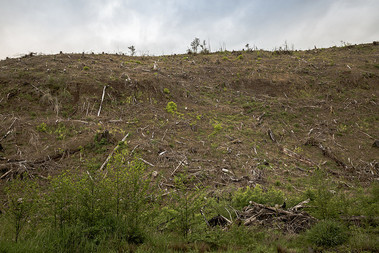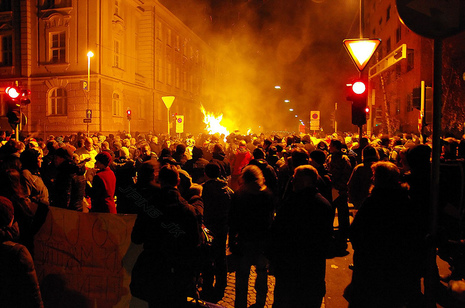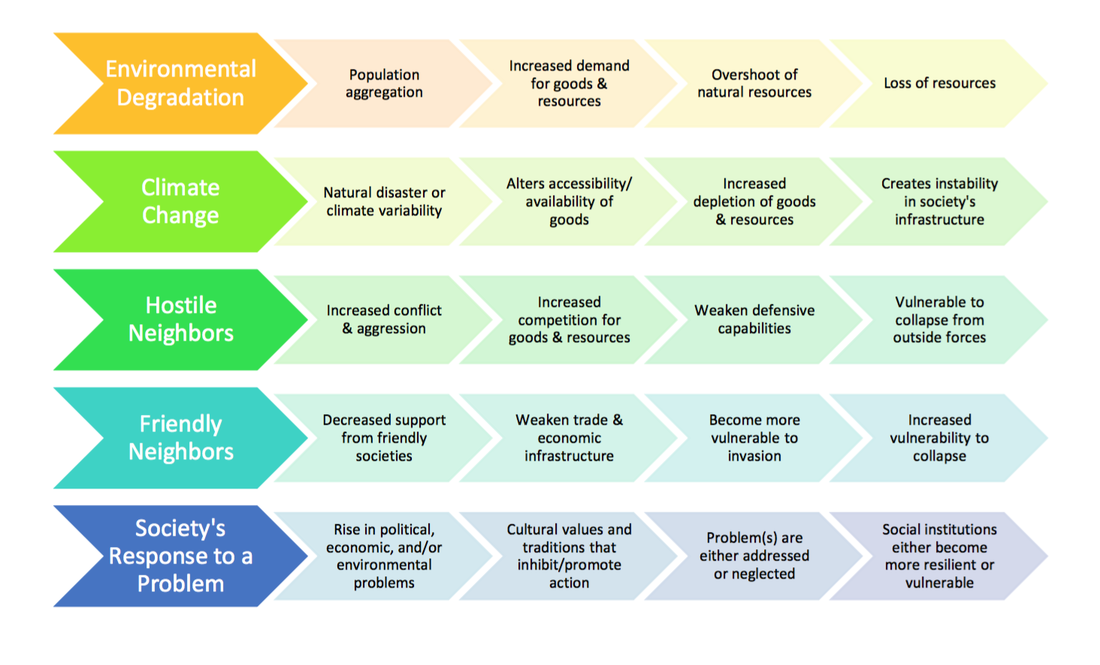CLIMATE CHANGE
Climate change is directly impacted by environmental damage. Diamond explains this relationship, “in many historical cases, a society that was depleting its environmental resources could absorb the losses as long as the climate was benign, but was then driven over the brink of collapse when the climate became drier, colder, hotter, wetter, or more variable” (14).
RELATIONS WITH HOSTILE SOCIETIESThe third factor, a society’s relationship with hostile neighbors, explains that true conflict between hostile societies can be held off for only so long; conflict will eventually break out between neighboring societies, and will typically occur because one of them is in a weakened state and unable to defend themselves.
RELATIONS WITH NEIGHBORING FRIENDLY SOCIETIES |
The fourth factor examines decreased support from once-friendly neighbors and the impact that this has on a society in terms of trading. This decreased support does not necessarily need to be due to hostility, but can also be a result of the weakened state of a neighboring society who is unable to provide their allies with trade or military support.
SOCIETY'S RESPONSE TO PROBLEMS
|
The last factor, a society’s response to environment, social, political and economic changes is, according to Diamond, one the most important factors regarding societal collapse. Diamond explains his fifth factor, “a society’s responses depend on its political, economic, and social institutions and on its cultural values. Those institutions and values affect whether the society solves (or even tries to solve) its problems” (15) [2]. |
MECHANISMS
Photos used under Creative Commons from Tony Webster, Biblioteca General Antonio Machado, Jumpin'Jack, auspices




